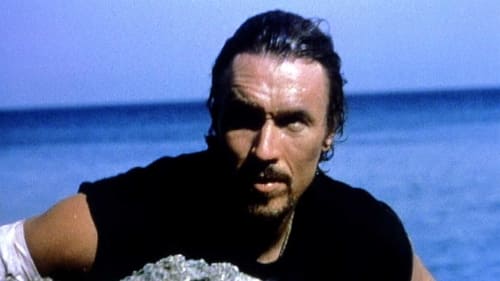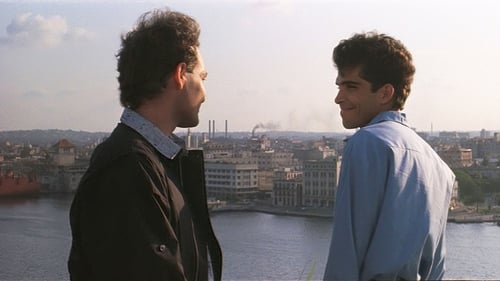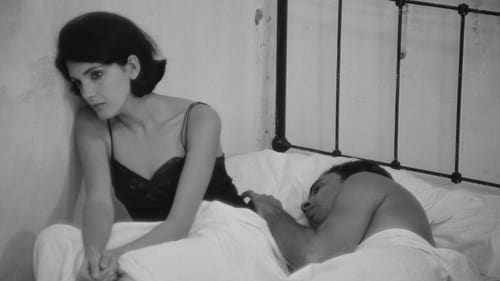
Editor
The Second Republic has fallen miserably. Simon Bolivar arrives to Jamaica without money or friends, seeking help from other nations to free Venezuela.

Cinematography
The Second Republic has fallen miserably. Simon Bolivar arrives to Jamaica without money or friends, seeking help from other nations to free Venezuela.

Original Music Composer
The Second Republic has fallen miserably. Simon Bolivar arrives to Jamaica without money or friends, seeking help from other nations to free Venezuela.

Producer
The Second Republic has fallen miserably. Simon Bolivar arrives to Jamaica without money or friends, seeking help from other nations to free Venezuela.

Production Design
A widower is surprised to learn that his late wife lead a double life.

Producer
The first gay-themed film produced in Cuba by the Institute of Cinema since Strawberry & Chocolate in 1993. The theme, however, is the same as in Guttiérerez and Tabìo's film: homophobia, machismo and fear. The fatal attraction between Alfredo, a doctor in the merchant navy, and handsome Carlos starts in a rundown Havana bar and ends at the sailor's house. But Alfredo's flirting and seducing of Carlos immediately turns into something complicated, ambiguous, dangerous. In a claustrophobic, tense atmosphere, their bodies are powerfully attracted, and the words, though violent, intensify the level of sensuality. Does each man kill the thing he loves? Evoking dreamlike atmospheres and characters, 80-year-old veteran director Enrique Pineda Barnet openly references Fassbinder's Querelle and Jean Genet. Quite controversial in its approach, the films demonstrates the milder attitude of Raul Castro's regime towards Cuba's LGBT Community.

Producer
A reunion with his family provides a clue into the cause of one man's lonely life in this drama from filmmaker Manuel Martin Cuenca. Oscar lives in a barren section of Almeria, Spain, where he works as a guard at a salt mine. Oscar's days are governed by a monotonous routine: he goes to work, has lunch with fellow guard Miguel, finishes work, visits his dying grandfather at a hospice, and then goes home. While he sometimes spends his evenings with a woman, it's clear their relationship is not a close one. One day, Oscar gets word that grandfather has been transferred to a hospital, and his sister Maria, who now lives in Paris, comes to Almeria to pay the old man a visit. Maria, who is expecting a baby, is accompanied by her boyfriend Jean , who tries to keep a distance between the two siblings. It becomes clear that Oscar and Maria share an ugly secret that she wants to keep hidden at all costs, leading to an grim tension that grows between her and her brother.

Producer
In a Havana, shaken by Fidel's retirement, a young seamstress, trapped in a sweatshop job, dreams of designing beautiful dresses. Frustrated by her lazy, though adorable Cuban boyfriend, she meets a sophisticated ex-patriot Cuban-Venezuelan who dazzles her with a glamorous future. After many deceptions and surprises, Eva has to choose between the two men she loves. Hers is an unexpected decision... a humorous metaphor of Cuba's options for the future

Producer
An unclaimed fortune, grown for centuries in a British bank account, becomes a potential windfall for Bernadito Castiñeiras and the residents of the tiny village of Yaragüey, Cuba. To receive his massive inheritance check, Bernadito must prove his lineage to the Castiñeiras nuns who first populated the region. In an isolated and impoverished town where many residents share the same surname, a feud breaks out between the "Castiñeiras" and "Castiñeyras" families.

Co-Producer
Sea of Danger, Sea of Desire

Co-Producer
Marta must travel to Colombia to take charge of the corpse of his brother Juan, who has been murdered. Once there, she gets involved in a mysterious plot.

Producer

Executive Producer
Havana, Cuba, 1979. Flamboyantly gay artist Diego (Jorge Perugorría) attempts to seduce the straight and strait-laced David, an idealistic young communist, and fails dismally. But David conspires to become friends with Diego so he can monitor the artist's subversive life for the state. As Diego and David discuss politics, individuality and personal expression in Castro's Cuba, a genuine friendship develops between the two. But can it last? Strawberry and Chocolate became an instant hit when it was released, and has become a classic of Cuban cinema due to its charming and authentic exploration of a connection between two people under historical circumstances that seem levelled against them.

Producer
The action is situated in Colombia on April 9, 1948, date in which took place the famous "Bogotazo". It is a story of love frustrated by political circumstances. Laura, a spinster schoolteacher, lives to Josefina and Santiago, public employee. The three characters will be besieged by 24 hours, targeted by snipers, will be forced to show such which are or they would have liked to be.

Producer
Cheo visits his friend, Manolo, who he hasn't seen for many years. They drink to celebrate their reunion and fondly recall the times they spent together in years past. As they reminisce, the two friends confront the revolution, evaluate their lives, and bare their souls.

Producer
A pious plantation owner attempts to teach Christianity to 12 of his slaves by inviting them to participate in a reenactment of the Last Supper.

Producer
In 1672 Cuban revolutionaries launch an uprising against the Spanish who are occupying the country.

Producer
In his award-winning film Lucía, Humberto Solás interpreted the theme of Cuba’s hundred years' struggle in an entirely novel way to create an epic in three separate episodes, each centred around a woman called Lucía and each unfolding in a different period of Cuban history, corresponding to the three stages of colonialism (1895), neocolonialism (1930) and socialist revolution (1968). The three episodes also present us with "Lucías" of different social classes. Solás described his film in this way: "The woman's role always lays bare the contradictions of a period and makes them explicit: Lucía is not a film about women, it's a film about society."














